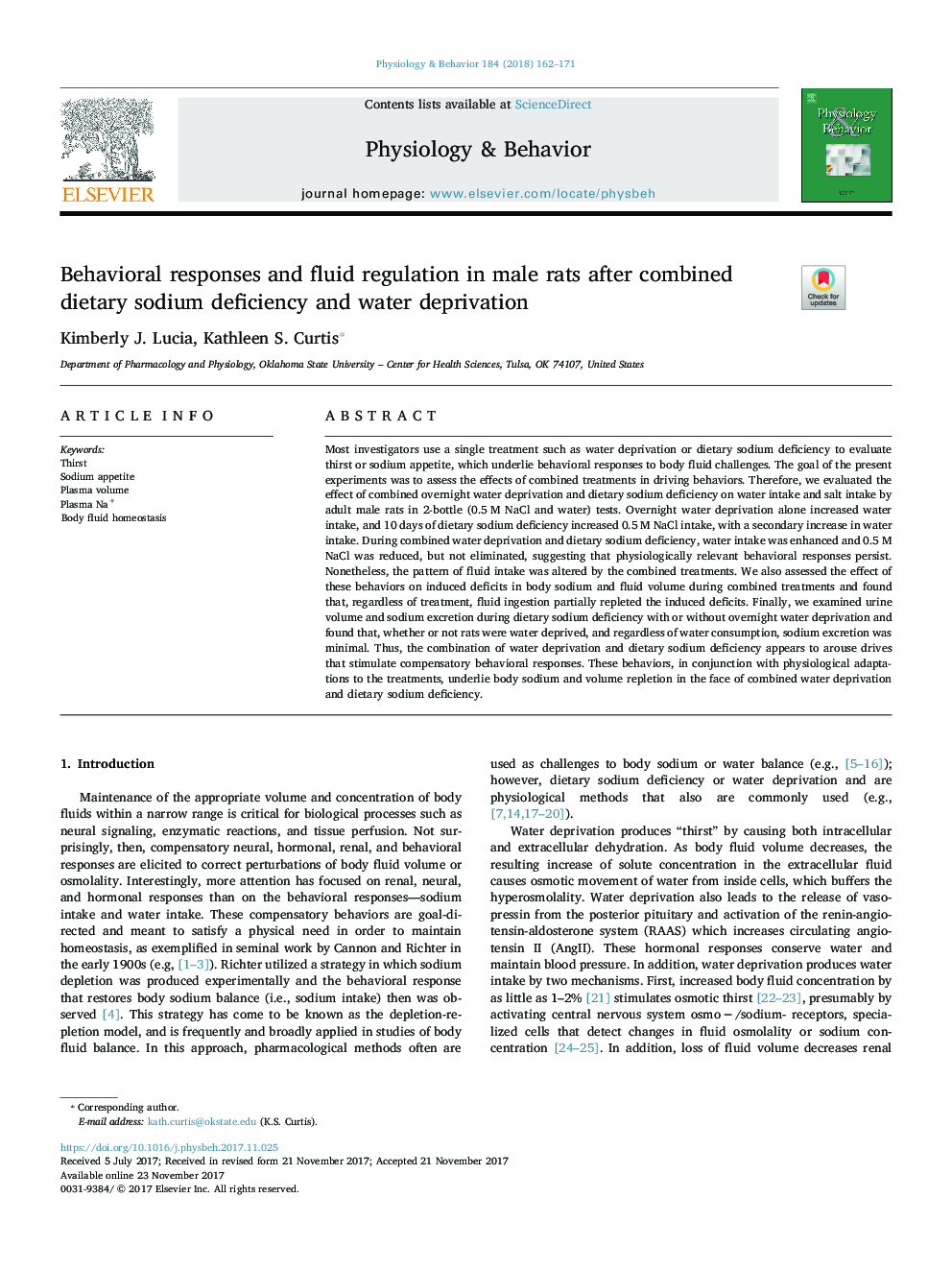| Article ID | Journal | Published Year | Pages | File Type |
|---|---|---|---|---|
| 8650707 | Physiology & Behavior | 2018 | 10 Pages |
Abstract
Most investigators use a single treatment such as water deprivation or dietary sodium deficiency to evaluate thirst or sodium appetite, which underlie behavioral responses to body fluid challenges. The goal of the present experiments was to assess the effects of combined treatments in driving behaviors. Therefore, we evaluated the effect of combined overnight water deprivation and dietary sodium deficiency on water intake and salt intake by adult male rats in 2-bottle (0.5Â M NaCl and water) tests. Overnight water deprivation alone increased water intake, and 10Â days of dietary sodium deficiency increased 0.5Â M NaCl intake, with a secondary increase in water intake. During combined water deprivation and dietary sodium deficiency, water intake was enhanced and 0.5Â M NaCl was reduced, but not eliminated, suggesting that physiologically relevant behavioral responses persist. Nonetheless, the pattern of fluid intake was altered by the combined treatments. We also assessed the effect of these behaviors on induced deficits in body sodium and fluid volume during combined treatments and found that, regardless of treatment, fluid ingestion partially repleted the induced deficits. Finally, we examined urine volume and sodium excretion during dietary sodium deficiency with or without overnight water deprivation and found that, whether or not rats were water deprived, and regardless of water consumption, sodium excretion was minimal. Thus, the combination of water deprivation and dietary sodium deficiency appears to arouse drives that stimulate compensatory behavioral responses. These behaviors, in conjunction with physiological adaptations to the treatments, underlie body sodium and volume repletion in the face of combined water deprivation and dietary sodium deficiency.
Keywords
Related Topics
Life Sciences
Biochemistry, Genetics and Molecular Biology
Physiology
Authors
Kimberly J. Lucia, Kathleen S. Curtis,
